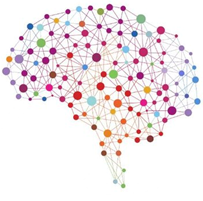Talk title: Things that make us different: Early life events, psychotic experiences, face recognition abilities
Abstract
I will cover three diverse but loosely related topics, which all involve computational modelling to understand individual differences. For the first topic, we illustrate the profound effects adverse events during the formative childhood years can have on adult decision making styles. Such experiences lead to reduced exploration of the environment and less learning from rewarding outcomes. For the second topic, we address the ongoing debate about how individuals with subclinical psychosis-proneness make inferences. We show that (1) visual evidence more easily sways perceptual inference in such individuals; (2) disruption of posterior parietal activity using transcranial magnetic stimulation in delusion-prone individuals reduces this evidence overweighting. We interpret our results in terms of aberrant sensory precision in a predictive coding framework. For our third topic, we challenge a longstanding theory that predicts that caricaturing faces to render them more distinctive should enhance recognition. We illustrate cases where caricature increases errors, even in individuals with exceptional face recognition ability and in convolutional deep neural networks. In summary, I will give three examples of research domains where computational modelling can help understand traits related to decision making, belief and visual ability.

